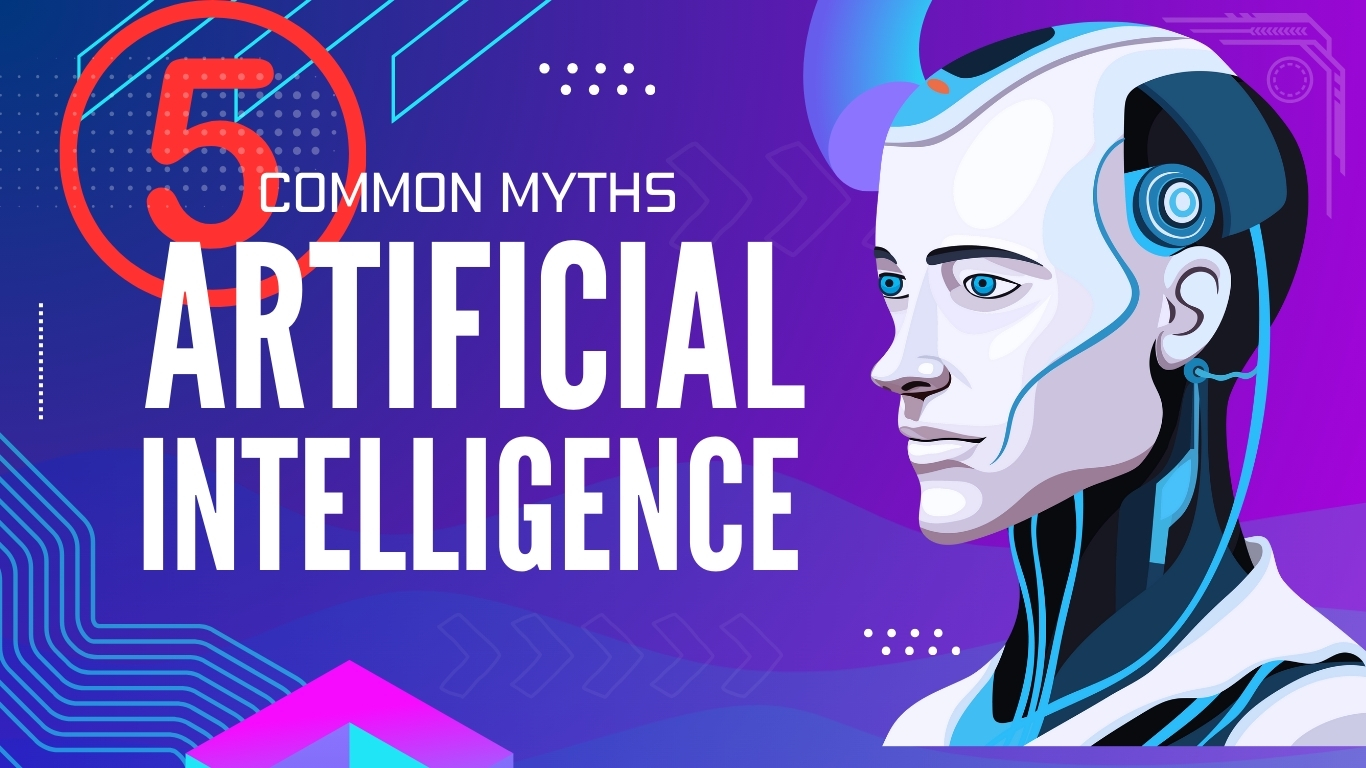5 Most Common Myths about AI: In the era of technology, Artificial intelligence got too much hype. Undoubtedly, the artificial intelligence potential
5 Most Common Myths about AI:
In the era of technology, Artificial intelligence got too much hype. Undoubtedly, the artificial intelligence potential can not be ignored but it also has some myths which confuse the truth of Artificial intelligence from imagination. It causes trouble in contrasting the facts of artificial intelligence with those of imagination. When the myths are about Artificial intelligence, most of the theories seem true, but looking at the actual efficiencies of Artificial intelligence, these myths might not be proven true. Let’s talk about some of the most repeated and Common Artificial intelligence myths. This article will dive deeper into the most familiar myths about artificial intelligence. we have written a detailed content of 5 Most Common Myths about Artificial intelligence as follows.
Myth#1: Artificial intelligence will eat up our jobs.
The most common and popular concern of people is losing jobs due to Artificial intelligence work proficiency. Although the reality of AI is more subtle. The AI more often admires humans instead of replacing them. Human abilities like thinking, decision-making, and creativity are quite difficult for AI to replicate. AI will not eliminate the jobs but rather change their nature and work abilities. AI can perform automated, repetitive tasks while humans can operate, maintain, and manage these machines. AI will introduce more job opportunities that didn’t exist ever before. AI can potentially provide more jobs and lead to more economic growth and development.
According to the World Economic Forum, while AI and automation may displace certain jobs, they are also expected to create millions of new jobs by 2025, particularly in areas like AI development, data analysis, and specialized roles requiring human skills.
Myth#2: AI Is Infallible
Another common misconception is that AI systems are infallible and make decisions without error. In truth, AI is only as good as the data it is trained on and the algorithms that process this data. Biases in training data can lead to biased outcomes, and algorithms can make mistakes, especially in complex, real-world situations. It’s crucial to remember that AI is a tool created by humans, and it inherits the limitations and biases of its creators and the data it processes.
Myth#3: AI Has Human-Like Understanding:
Many people assume AI has a human-like understanding of language, emotions, and context. However, AI lacks consciousness and genuine understanding. What AI does is recognize patterns and make predictions based on data. For example, AI can generate text that mimics human language, but it does not comprehend the meaning or nuance behind the words. This distinction is important in managing expectations about AI’s capabilities, particularly in tasks requiring empathy and contextual judgment.
Myth#4: AI Will Become Sentient
The notion that AI will achieve sentience and develop its own goals and desires is a popular theme in science fiction, but it remains purely speculative. Current AI operates based on pre-defined goals set by humans and does not possess self-awareness or consciousness. While advancements in AI continue, the leap to sentient AI is far from being realized and raises significant ethical and philosophical questions that society must address before it becomes a concern.
Myth#5: AI Is Only for Tech Giants
There is a belief that AI technology is exclusive to large tech companies with vast resources. In reality, AI is becoming increasingly accessible to businesses of all sizes and industries. Cloud-based AI services, open-source frameworks, and affordable hardware are democratizing AI, enabling small and medium-sized enterprises (SMEs) to leverage AI for enhancing their operations, customer service, and decision-making processes. The proliferation of AI tools means that the benefits of AI are not limited to tech giants but are available to a broader spectrum of users.
Conclusion:
AI is a powerful tool that holds great promise for the future, but it is also a field shrouded in myths and misconceptions. By understanding the realities of AI—its potential and its limitations—we can better navigate its integration into our lives and work. Dispelling these myths is essential for fostering a more informed and balanced perspective on AI, enabling us to harness its benefits while mitigating its risks.

COMMENTS